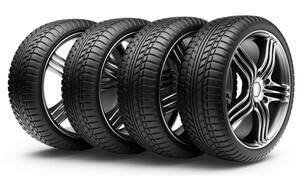Tyres for summer vs. tyres for winter
Body
Quick facts: Checklist for seasonal tyres
• You should switch to winter Mazda Tyres Northampton when the average temperature for the season drops below 7 °C (46 °F).
• Winter tyres work well in all kinds of cold weather, such as snow, ice, wet roads, and cold, dry roads.
• When the weather gets warmer than 7 °C (46 °F), put summer tyres on your wheels.
• Summer tyres grip well on both wet and dry roads, are stable around corners, and get the best mileage when it's warm out.
• All-season tyres offer safety, performance, and grip in moderate climates without the cost, effort, and time of changing tyres for the seasons.
Throughout the year, the weather changes, which can make it hard to drive. Your car will run better if you put tyres on the wheels that are thru for the way you drive and the weather where you live. Some countries have laws that say you have to have winter tyres. In this section, we'll talk about how summer tyres, winter tyres, and all-season tyres are different from each other.
Continental has a wide range of tyres with the latest technology to meet all your needs as a driver. Continental will take care of you no matter what time of year it is.
When do you need tyres for the summer?
When the weather gets warmer and the temperature goes above 7 °C, you should put summer tyres on your wheels. They have a lot of grip on both wet and dry roads because their tread patterns and tread compounds are thru for those conditions. Summer tyres are also very stable in curves and get the best mileage when the weather is hot. This means you can drive your car with confidence on wet or dry roads that are slick during the warmer months. But keep in mind that summer tyres are not good for driving in the winter, so make sure to change your tyres when the season changes.
When should you get snow tyres?
When the temperature drops below 7 °C (46 °F), it's time to switch to winter tyres. These tyres work well in all kinds of winter weather, including snow, ice, wet roads, and cold, dry roads. They stop better in snowy and icy conditions and have a deeper tread pattern that clears away slush and digs into the snow for better grip.
One reason they work so well is that they are thru of a special rubber compound that stays soft and flexible even when it's cold outside. This makes it easier to control the car. But you shouldn't use winter tyres when it's warm outside. The softer rubber will wear out faster on dry pavement and need replacement sooner.
Problems that can happen if you use summer tyres in the winter
Winter is coming soon because the seasons are changing. The weather is getting colder, and there might be some snow or ice on the road. You know you should, but it can be a pain to change the tyres on your car. You're not sure if you can leave your car's summer tyres on it. No, is the short answer. Using summer tyres in the winter could be dangerous and could cause your tyres to wear out.
The weather where you live is a big part of how you choose your tyres. All-season tyres could be a good choice for mild winter conditions where it only freezes occasionally.
We don't think it's a good idea to use summer tyres when there's snow, ice, or a lot of freezing weather. Winter is the time to get winter tyres or all-season tyres for your car.
Loss of grip and slipping
Summer tyres have less rolling resistance than winter tyres. This makes them more fuel-efficient, easier to handle, and quieter. The tread on these high-performance tyres is not good on ice and snow, though.
When it's cold outside, summer tyres don't move very fast. On snowy roads, winter tyres or snow tyres will do better than them. Also, summer tyres have low rolling resistance, which makes it hard to stop on snow or ice. A winter tyre has a deep tread and small grooves called sipes that dig into snow and stick to ice, making it easier to stop. Winter tyres, on the other hand, are thru of a material that is much softer and less likely to crack in cold weather.
Summer tyres are thru with a rubber mix that works well in warm weather. When the temperature goes down, the rubber gets harder. The tyre loses grip even if there is no snow or ice.
Continental's all-season tyres, on the other hand, have tread and grooves like those of winter tyres, so they can handle mild winter weather. But you should always keep in mind that winter tyres are thru especially for the conditions.
Damage could happen because of the cold.
Even when there is no ice or snow and the roads are dry, it is colder in the winter. Summer tyres are not thru to handle the cold. The tread will get hard. This not only makes it harder to move, but it also puts the tyre at risk.
The tyre loses its ability to stretch, and it may break. There is a chance that the thread block will break because it is too hard. Tyres that have got chipped or cracked are not safe to drive on, so they need to get replaced.
All-season tyres can prove to be an alternative.
Even though all-season tyres aren't good for harsh winters, they can be a good choice for drivers who live in mild winters.
The all-season tyre is easy to control and stops well on both dry and wet surfaces. Also, drivers can save money, time, and effort by not having to change their tyres as often.If you aren't sure which Cheap Tyres Northampton to buy, you should talk to a dealer in your area.










Comments